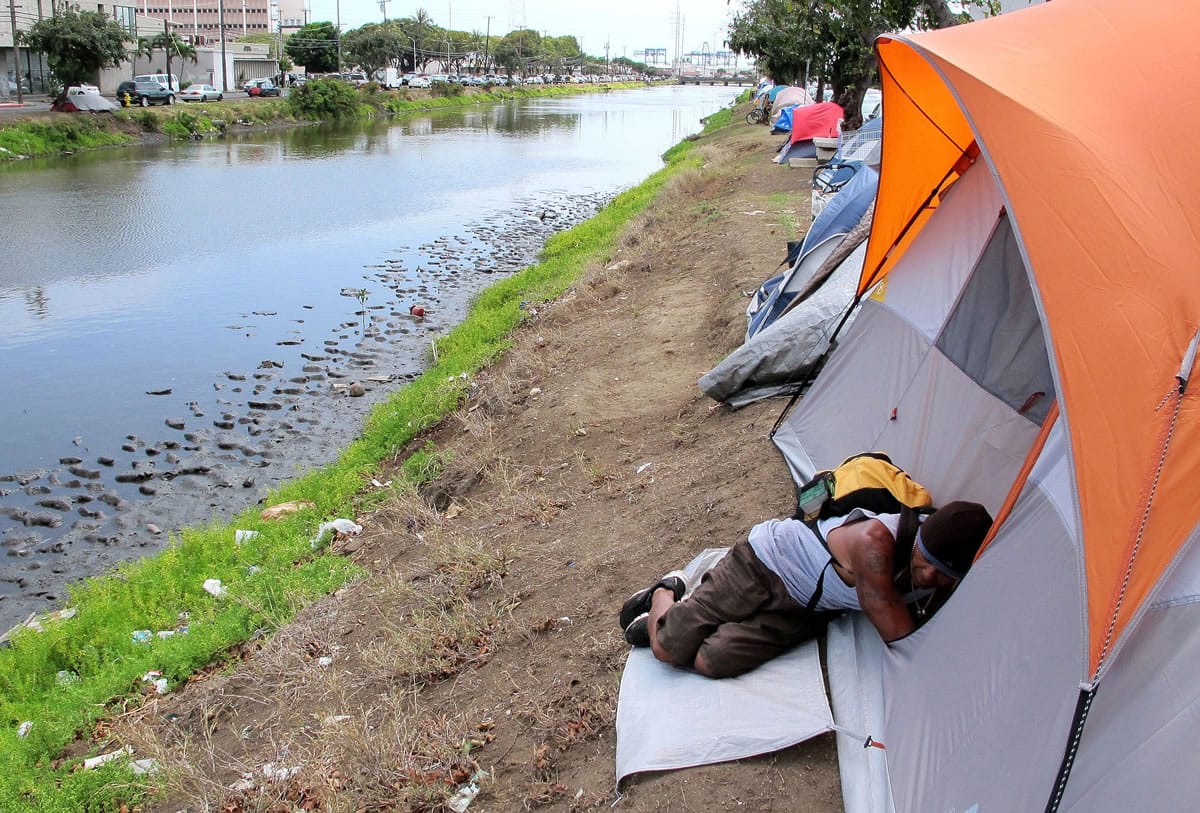We all need sleep, which is a fact of life but also a legally important point. Last week, the Department of Justice argued as much in a statement of interest it filed in a relatively obscure case in Boise, Idaho, that could impact how cities regulate and punish homelessness.
Boise, like many cities, has an ordinance banning sleeping or camping in public places. But such laws, the DOJ says, effectively criminalize homelessness itself in situations where people simply have nowhere else to sleep. From the DOJ’s filing:
“When adequate shelter space exists, individuals have a choice about whether or not to sleep in public. However, when adequate shelter space does not exist, there is no meaningful distinction between the status of being homeless and the conduct of sleeping in public. Sleeping is a life-sustaining activity — i.e., it must occur at some time in some place. If a person literally has nowhere else to go, then enforcement of the anti-camping ordinance against that person criminalizes her for being homeless.”
Such laws, the DOJ argues, violate the 8th Amendment protections against cruel and unusual punishment, making them unconstitutional. By weighing in on this case, the federal government is warning cities far beyond Boise and backing up federal goals to treat homelessness more humanely.
“It’s huge,” says Eric Tars, a senior attorney for the National Law Center on Homelessness & Poverty, which originally filed the lawsuit against Boise, alongside Idaho Legal Aid Services.
According to a NLCHP report last year that surveyed 187 cities between 2011 and 2014, 34 percent had citywide laws banning camping in public. Another 43 percent prohibited sleeping in vehicles, and 53 percent banned sitting or lying down in certain public places.
And they’ve criminalized that behavior in an environment where most cities have far more homeless than shelter beds. In 2014, the federal government estimates, there were about 153,000 unsheltered homeless on the street in the U.S. on any given night.
Laws like these have grown more common as that math has actually grown worse since the recession.
“Homelessness is just becoming more visible in communities, and when homelessness becomes more visible, there’s more pressure on community leaders to do something about it,” Tars says. “And rather than actually examining what’s the best thing to do about homelessness, the knee-jerk response — as with so many other things in society — is ‘we’ll address this social issue with the criminal justice system.’ “
It’s also easier, he adds, for elected officials to argue for criminal penalties when the public costs of that policy are much harder to see than the costs of investing in shelters or services for the poor. Ultimately, though, advocates and the federal government have argued, it’s much more expensive to ticket the homeless — with the court, prison and health costs associated with it — than to invest in “housing-first” solutions that have worked in many parts of the country.



